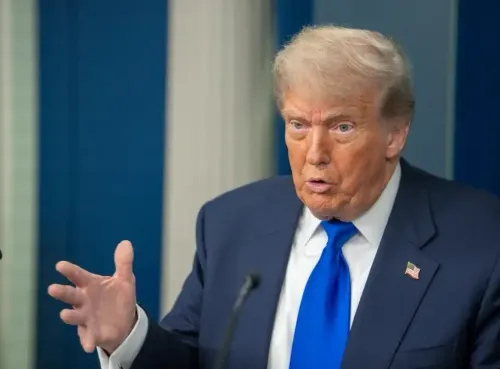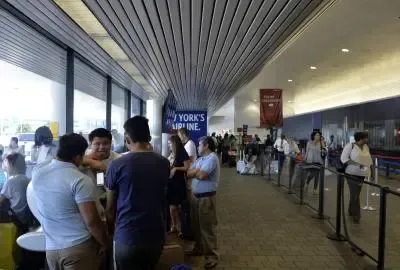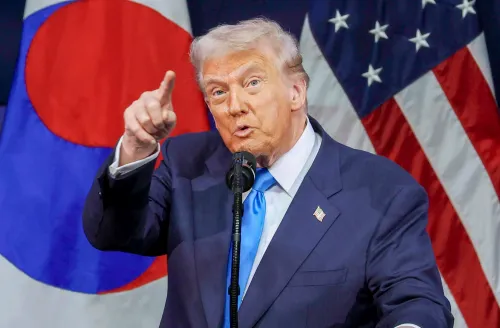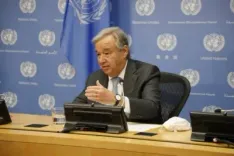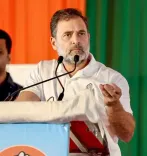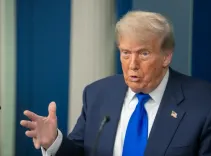Will the Third Round of Russia-Ukraine Peace Talks Bring Results?
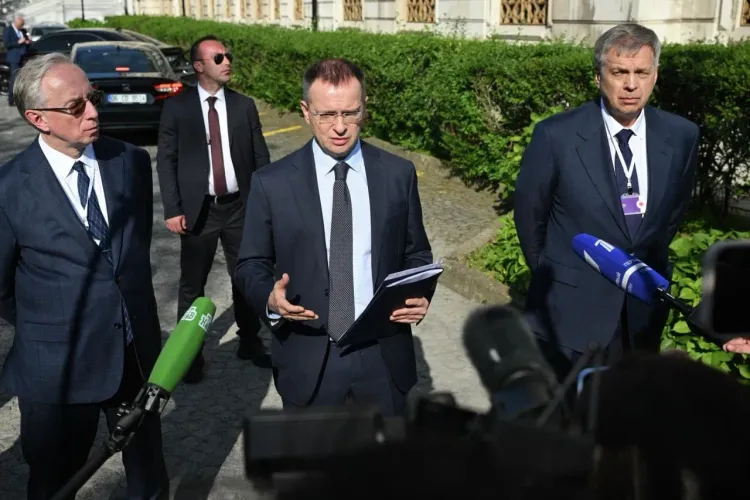
Synopsis
Key Takeaways
- Third round of talks commences in Istanbul.
- Delegations led by key political figures from both sides.
- Previous talks yielded little progress.
- Disparate positions on ceasefire and territorial recognition.
- Ukraine is enhancing its military capabilities.
Moscow, July 23 (NationPress) A Russian delegation has departed for Istanbul, where the third round of negotiations with Ukraine is anticipated to commence as soon as Wednesday evening, according to reports from the country's media.
The delegation from Moscow is being led by Vladimir Medinsky, a presidential aide, while the Ukrainian team is directed by Rustem Umerov, the Secretary of the National Security and Defence Council.
The previous two rounds of discussions, conducted in Istanbul on May 16 and June 2, resulted in prisoner exchanges but saw minimal advancements towards establishing a ceasefire.
Last month, the Ukrainian President appointed Umerov, a former Defence Minister who represented Ukraine in the earlier negotiations, as the Secretary of the National Security and Defence Council.
“The momentum of the negotiations must be accelerated,” Zelensky remarked. “Every effort should be made to achieve a ceasefire.”
The Kremlin has tempered expectations regarding the forthcoming meeting. “We have no grounds to anticipate miraculous breakthroughs,” stated Kremlin spokesperson Dmitry Peskov on Tuesday, labeling such outcomes as “hardly feasible in the current circumstances.”
Russia aims to “protect our interests, ensuring we meet the objectives established from the outset,” he indicated.
Peskov also noted that Moscow and Kyiv remain “diametrically opposed” in their approaches to resolving the conflict, emphasizing that “much work” remains, as reported by Xinhua news agency.
After the last peace talks, Russian President Vladimir Putin described the proposals for a peace agreement from both sides as “absolutely contradictory memorandums.”
As Russia calls for Ukrainian neutrality, a commitment to avoid military alliances, and international acknowledgment of Crimea, Luhansk, Donetsk, Zaporizhzhia, and Kherson as part of Russian territory, Ukraine's memorandum asserts that the nation is “not compelled to be neutral.”
“It has the option to join the Euro-Atlantic community and work towards EU membership. Ukraine's accession to NATO is contingent upon consensus within the Alliance,” it stated.
Additionally, the Ukrainian President revealed last week that his administration plans to enhance domestic arms production to cover half of the nation’s military requirements within six months. He noted that Ukraine has also created its own long-range drones capable of striking deep within Russia.


